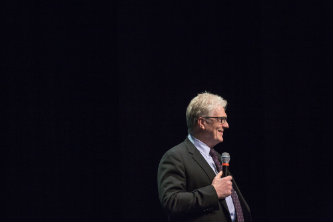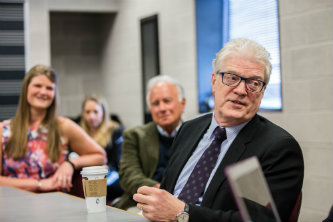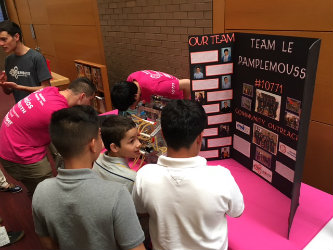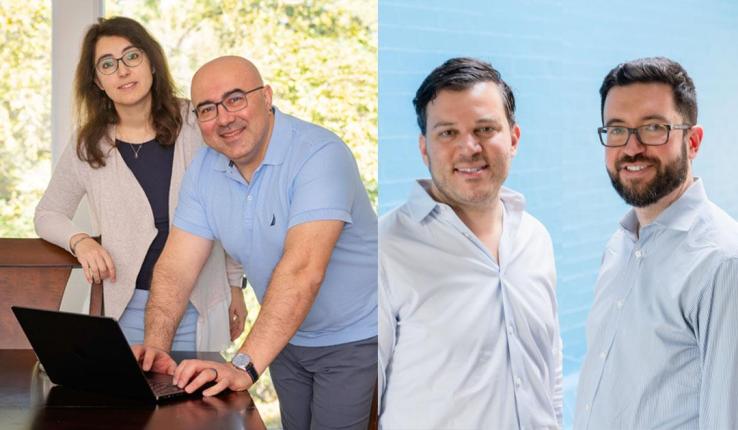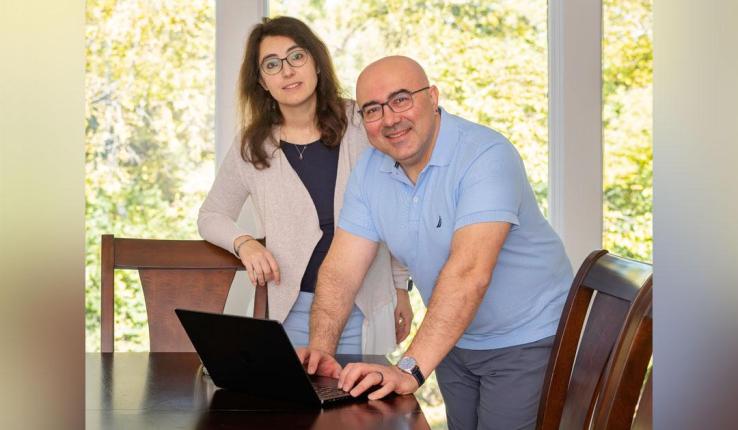Sir Ken Robinson: 'The Real Principle that Governs Human Ability is Diversity'
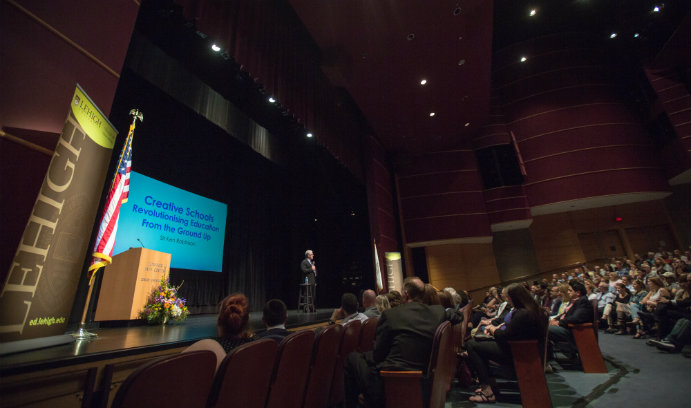
Sir Ken Robinson delivered an hour-long lecture on 'Creative Schools: Revolutionizing Education from the Ground Up' in the Zoellner Art Center’s Baker Hall. Photo: Christa Neu
Creativity expert Sir Ken Robinson argued Tuesday for a paradigm shift in today’s educational system—from one focused on conformity, compliance and linearity to one that encourages diversity, creativity and personalized learning.
Speaking at Lehigh as part of the College of Education’s Distinguished Lecture Series, Robinson argued, “If you get the culture of schools right…if you make them exciting and vital places to be, kids will want to be there. They’ll want to learn, and they’ll do well….And if we do that, then we’ll serve our children the best way we possibly can.”
Students’ best hope for the future and its unpredictability will be to have all their talents developed, he said, so they can create their lives along the way.
Robinson delivered an hour-long lecture on “Creative Schools: Revolutionizing Education from the Ground Up” in the Zoellner Art Center’s Baker Hall. The lecture was both entertaining and thought-provoking—a hallmark of his TED talks, which have been viewed by an estimated 300 million people.
“Human beings are learning organisms,” he said. “We love to learn.” But, he added, people have more talents than are discovered. “You have to go around and dig for it. It doesn’t always show itself. We need circumstances in which it will become apparent.”
If students go through school and never discover what they are good at, and if they are constantly tested on subjects they are not good at, he said, it can be sobering. “That’s why so many people leave school believing they’re not very smart,” he said, while acknowledging that some students thrive in the system.
“We’ve come, for the most part, to confuse academic ability in particular with intelligence in general. It’s not the whole of human intelligence. If it were, there’d be no music, dance, art, no love of anything,” he said.
“The real principle that governs human ability is diversity. Diversity is what makes us human. Diversity of talents and backgrounds and experiences and disposition.”
Robinson pointed out that in the last 25 years, the job market has shifted as the number of manufacturing jobs dramatically declined and many people found themselves underemployed. In response, government has tried to raise educational standards, assuming that a more educated workforce is needed for creative industries and services. He said there has been a doubling down on academic standards, resulting in the marginalization and collapsing of vocational educational training and apprenticeships.
“The thing is, they adopted the wrong strategy, in my opinion,” he said.
Robinson told the story of a fireman who, when younger and in high school, told his teacher about his passion for what would become his life’s journey. The fireman said his teacher had frowned on his career choice. But years later, the fireman came to save his teacher’s life, and his wife’s, following a car crash. “I think he thinks better of me now,” Robinson said the fireman told him, sparking laughter in the audience.
Robinson was critical, too, of standardized testing. “Teachers in schools are exhausted by it, and they should be, because it doesn’t work,” he said. “It has not moved the needle in the past 20 years. It has not improved standards in schools.”
He said the future of education is not to replicate a single model everywhere. “It’s the opposite,” he said. “It’s to personalize education and customize it.”
What’s important, he said, is the relationship between teachers and their students. He cautioned against becoming fixated on raising standards in literacy and math. Instead, he said, “understand the conditions under which these things improve…When you get fixed on the problem and ignore the context of it, it’s very hard to solve it.”
A question and answer segment followed the presentation. Robinson also signed books afterwards in the Zoellner Arts Center Atrium.
Prior to the talk, Robinson met with students from the College of Education to discuss creativity in schools. Jon Drescher, professor of practice in educational leadership, facilitated.
Also, students from the Bethlehem Area School District and Lehigh’s Centennial School participated in a Student Exhibition in the Lobby outside Baker Hall.
Posted on:


